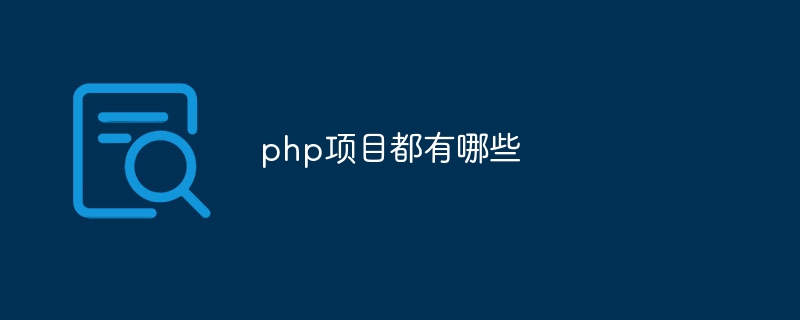使用自动加载翻译在 Laravel 中构建多态可翻译模型(翻译.构建.模型.自动加载.多态...)

处理多语言内容时,将翻译存储在 json 列中通常比每个属性的单独行更有效。这种方法将翻译整合到单个列中,简化了数据管理和检索。
设置翻译系统我们将增强翻译模型和表,以使用 json 列来存储翻译。这将涉及更新表架构并修改 translatable 特征以处理 json 数据。
第 1 步:创建翻译表迁移
如果翻译表尚不存在,则创建一个新的迁移:
php artisan make:migration create_translations_table
第2步:定义表结构
在database/migrations中打开生成的迁移文件。对于新表,定义如下:
use illuminate\database\migrations\migration;
use illuminate\database\schema\blueprint;
use illuminate\support\facades\schema;
class createtranslationstable extends migration
{
public function up()
{
schema::create('translations', function (blueprint $table) {
$table->id();
$table->string('locale'); // stores the locale, e.g., 'en', 'fr'
$table->string('translatable_type'); // stores the related model type, e.g., 'post', 'product'
$table->unsignedbiginteger('translatable_id'); // stores the id of the related model
$table->json('translations'); // stores all translations as a json object
$table->timestamps();
});
}
public function down()
{
schema::dropifexists('translations');
}
}
第 3 步:运行迁移
将迁移应用到您的数据库:
php artisan migrate
第四步:创建翻译模型
接下来,创建翻译模型来处理多态关系:
php artisan make:model translation
在translation模型中,定义多态关系:
class translation extends model
{
protected $fillable = ['locale', 'translatable_type', 'translatable_id', 'translations'];
protected $casts = [
'translations' => 'array',
];
public function translatable()
{
return $this->morphto();
}
}
使用 json 存储实现可翻译特征
为了使翻译处理可在多个模型中重用,我们将创建一个 translatable 特征,它将根据用户选择的区域设置自动加载翻译内容。此外,如果所选语言环境没有可用的翻译,我们将添加一个后备机制来从默认语言环境加载内容。
第 1 步:使用 json 处理创建可翻译特征
namespace app\traits;
use app\models\translation;
use illuminate\support\facades\app;
trait translatable
{
public static function boottranslatable()
{
static::retrieved(function ($model) {
$model->loadtranslations();
});
}
public function translations()
{
return $this->morphmany(translation::class, 'translatable');
}
public function loadtranslations()
{
$locale = app::getlocale();
$defaultlocale = config('app.default_locale', 'en'); // fallback to the default locale
// try to load translations for the current locale
$translation = $this->translations()->where('locale', $locale)->first();
if (!$translation && $locale !== $defaultlocale) {
// if no translations are found for the current locale, fallback to the default locale
$translation = $this->translations()->where('locale', $defaultlocale)->first();
}
if ($translation) {
$translations = $translation->translations;
foreach ($translations as $key => $value) {
$this->{$key} = $value;
}
}
}
public function addtranslations(array $translations, $locale = null)
{
$locale = $locale ?? app::getlocale();
return $this->translations()->updateorcreate(
['locale' => $locale],
['translations' => $translations]
);
}
}
第 2 步:将可翻译特征应用于您的模型
将 translatable 特征添加到任何需要翻译支持的模型中。
namespace app\models;
use app\traits\translatable;
use illuminate\database\eloquent\model;
class post extends model
{
use translatable;
protected $fillable = ['title', 'content'];
}
示例:创建翻译模型
将翻译添加为 json 对象:
$post = post::create(['title' => 'default title', 'content' => 'default content']);
// adding translations
$post->addtranslations([
'title' => 'hello world',
'content' => 'welcome to our website'
], 'en');
$post->addtranslations([
'title' => 'bonjour le monde',
'content' => 'bienvenue sur notre site web'
], 'fr');
检索翻译模型
当您检索 post 模型时,它将根据当前语言环境自动加载翻译后的内容,或者在必要时回退到默认语言环境:
app::setlocale('fr');
$post = post::find(1);
echo $post->title; // displays "bonjour le monde" if french translation exists
app::setlocale('es');
$post = post::find(1);
echo $post->title; // displays "hello world" as it falls back to the english translation
在视图中显示翻译内容
在 blade 视图中,您可以像任何其他模型属性一样显示翻译的内容:
<h1>{{ $post->title }}</h1>
<p>{{ $post->content }}</p>
结论
通过使用 json 列来存储翻译并实现回退机制,您可以简化 laravel 应用程序中多语言内容的管理。这种方法将翻译整合到单个列中,简化了数据处理并使您的代码库更易于维护。无论您是构建博客、电子商务网站还是任何多语言应用程序,此方法都能确保流畅高效的用户体验。
尽情享受!
以上就是使用自动加载翻译在 Laravel 中构建多态可翻译模型的详细内容,更多请关注知识资源分享宝库其它相关文章!
